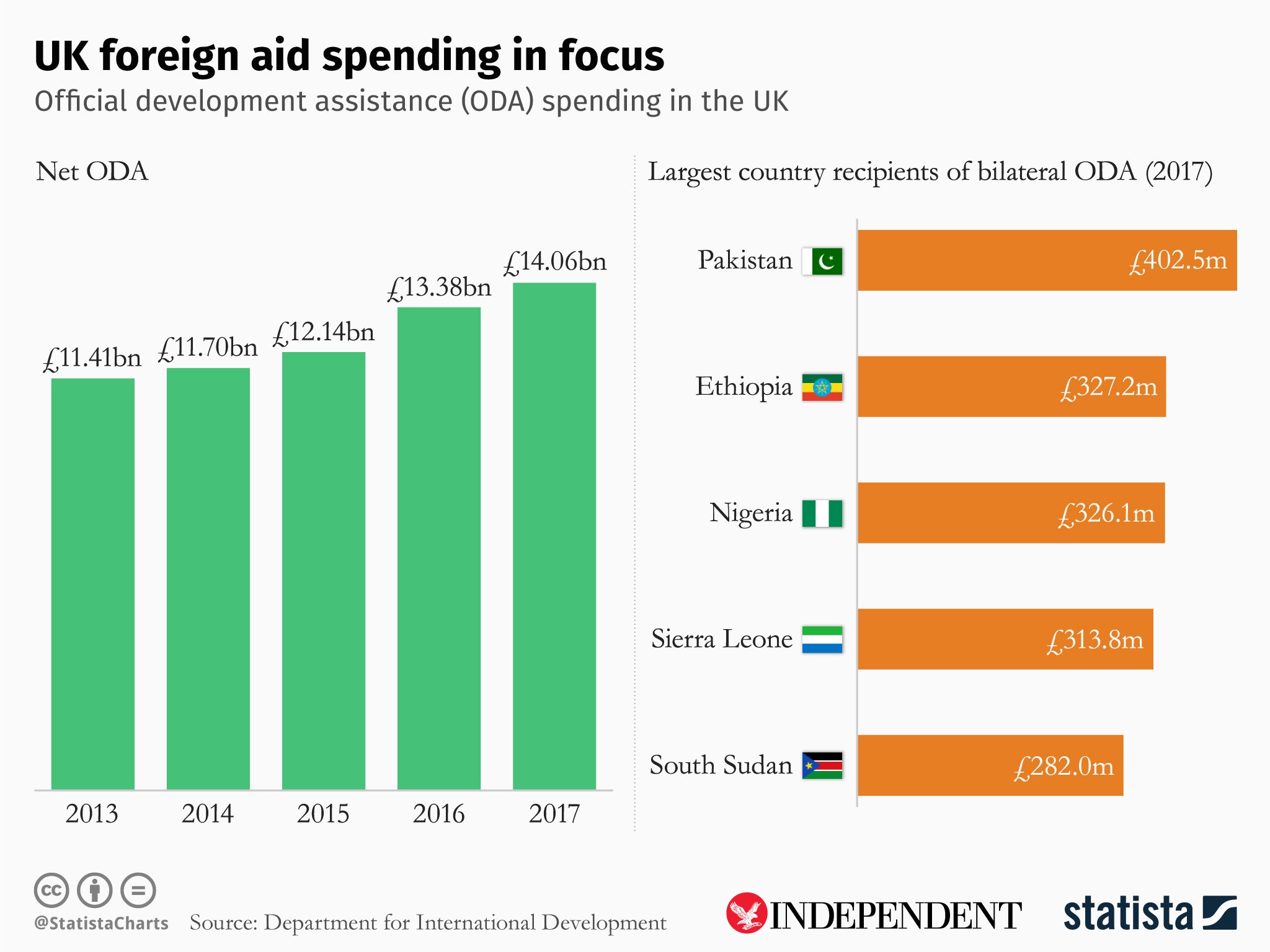Multibillion foreign aid budget should be spent to advance Britain’s ‘political and commercial interests’, Boris Johnson says
Former foreign secretary backs controversial call for a huge de facto cut in overseas aid spending
Boris Johnson has backed calls for a huge de facto cut in the foreign aid budget, saying the money should be spent in the UK’s “political and commercial interests”.
The £13.4bn pot should fund all peacekeeping work and world service broadcasting, a controversial report says – diverting much of its cash to the Ministry of Defence and the BBC.
And the aid target, enforced in law at 0.7 per cent of gross national income, should be reworked for the UK government’s own policy aims, beyond economic development in poor countries.
Mr Johnson threw his weight behind the proposals, put forward in a pamphlet by a backbench Tory MP, saying they “are hard to disagree with”.
“We could make sure that 0.7 per cent – a huge sum of money – was spent more in line with Britain’s political, commercial and diplomatic interests,” he said.
The comments were strongly criticised by aid campaigners, with Save The Children warning the UK was in danger of losing “its status as an international development superpower”.
It was “a role that both secures the UK’s seat at the world’s top tables and is saving and transforming children’s lives in some of the poorest places on earth”, said Kevin Watkins, the organisation’s chief executive.
Laura Taylor, Christian Aid’s head of global advocacy, said: “The concept of giving aid in the national interest is both flawed and immoral.
“Evidence shows that aid is far less likely to be effective if donors put their own priorities, or the interests of big business and private finance, ahead of the needs of the countries and people who should benefit from that aid.”
Mr Johnson pointed to his anger when, after Hurricane Irma devastated the British Virgin islands in 2017, UK aid cash could not be used to rebuild lives there.
“That was a real lesson to me in the importance of changing these rules,” the former foreign secretary told BBC Radio 4’s Today programme.

Mr Johnson insisted he did not “want to despoil DfID [department for international development] of their cash”, but added: “We can be smarter in the use of our aid money.”
The call comes after Penny Mordaunt, the international development secretary, came under fire from MPs after telling the cabinet the foreign aid budget was “unsustainable”.
The government should shift its focus towards attracting private donations, and reduce reliance on taxpayers’ money, she said last month.
Her remarks were seized upon by Labour, who claimed it was a “cynical attempt to undermine” the country’s commitment to eradicating global poverty.
The proposals were written by Bob Seely MP, a Conservative member of the Foreign Affairs Select Committee, and James Rogers, a leading strategist at the Henry Jackson Society think tank.
The proposals, to be fed into a Foreign Office review of the UK’s soft power, suggest the Foreign Office should swallow up incorporating both the DfID and the trade department.
The report says the UK’s projection of its power has been weakened by disjointed Whitehall structures and imbalances in the nation’s spending towards aid focused on economic deprivation.
Join our commenting forum
Join thought-provoking conversations, follow other Independent readers and see their replies
Comments
Bookmark popover
Removed from bookmarks